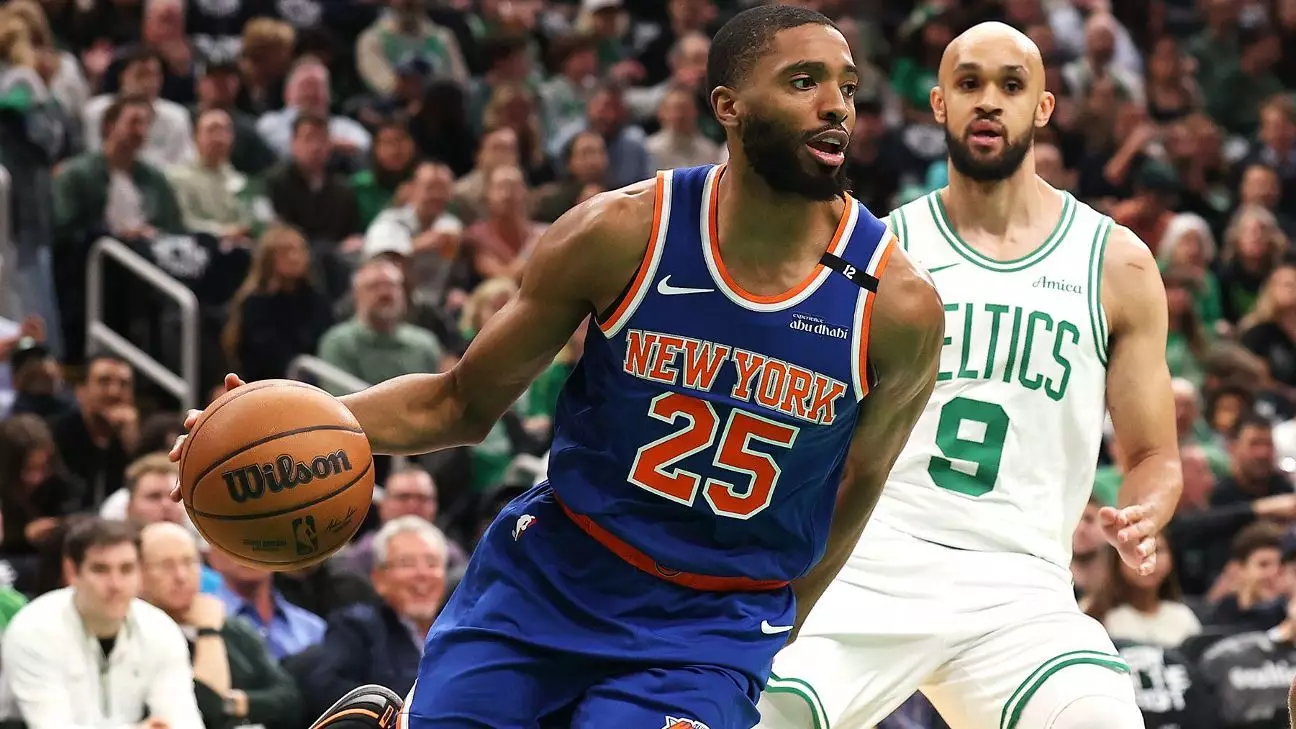Mikal Bridges’ recent four-year, $150 million deal with the New York Knicks exemplifies a bold yet calculated move by both player and organization. Instead of chasing the maximum possible salary, Bridges opted for a slight discount, demonstrating a strategic understanding of the league’s evolving salary cap landscape. This contract not only secures his spot on the team but also grants the Knicks greater financial flexibility to pursue additional talent. His deal, which includes a player option for the 2029-30 season and a trade kicker, underscores a long-term commitment infused with clause protections, reflecting a mature approach from his camp.
This decision reveals a nuanced appreciation of how team-building in the modern NBA is often a balancing act between star retention and roster agility. By accepting slightly less, Bridges enables the Knicks to remain competitive without sacrificing the ability to pursue higher-tier free agents or make impactful trades. The move also demonstrates Bridges’ confidence in the team’s trajectory, especially considering his previous underwhelming debut season with the franchise. His willingness to commit long-term hints at a belief in the Knicks’ vision of contending and possibly even winning a championship in the coming years.
From Questionable to Key Contributor: Bridges’ Evolving Role
When Bridges arrived from Brooklyn in a trade that involved multiple first-round picks, expectations soared. Yet, the reality was less straightforward. His first season with New York was marked by adjustment challenges, primarily due to a shift in his role from a primary scorer to a defensive and tertiary offensive option. Initially, he struggled with his shooting efficiency, free throw attempts, and overall integration into the Knicks’ system. Even publicly expressing concerns about minutes — a rare transparency in the NBA — indicated the complexity of his transition.
Despite these hurdles, Bridges showcased resilience and adaptability. His commendable durability—appearing in every game—highlighted his commitment. As he acclimated to a more restrictive offensive role, he found ways to contribute, especially on the defensive end and in his elite corner three shooting. His late-season rise in clutch moments and key defensive plays against Boston demonstrated that beneath the surface clutter of a troubled first campaign lies a player capable of elevating under pressure. His performance suggests that his effectiveness isn’t solely measured by traditional stats but also by intangibles like leadership, versatility, and the ability to perform in crucial moments.
Strategic Intent: Building a Contender or a Rebuilder?
The Knicks’ signing of Bridges can be viewed through a dual lens. On one hand, it signals a firm belief in his growth potential and his fit within the team’s core. On the other, it embodies a broader strategy of assembling a flexible, competitive roster capable of navigating the salary cap and future trades. The extension’s inclusion of a player option and trade kicker are indicative of a long-term plan where Bridges can be both a cornerstone and a movable asset, based on the team’s evolving needs.
This calculated approach is significant because it highlights the New York Knicks’ shifting identity from perennial underachievers to serious contenders. The recent success in reaching the Eastern Conference Finals after a 25-year drought speaks to a franchise intent on maintaining this momentum. The duo of Jalen Brunson and Bridges has redefined expectations, proving the front office’s newfound ability to attract and retain star-level talent at a manageable cost.
However, the question remains whether this strategy will translate into sustained success. The NBA is brutal and unpredictable, and while Bridges’ versatility and emerging confidence are promising, the team’s future hinges on continues roster alchemy. It’s crucial for the Knicks to capitalize on this momentum by investing thoughtfully and avoiding complacency. Bridges’ contract is more than a financial arrangement; it is a statement of intent—a clear signal that New York is committed to building a resilient, adaptable team capable of challenging the NBA’s elite.


Leave a Reply